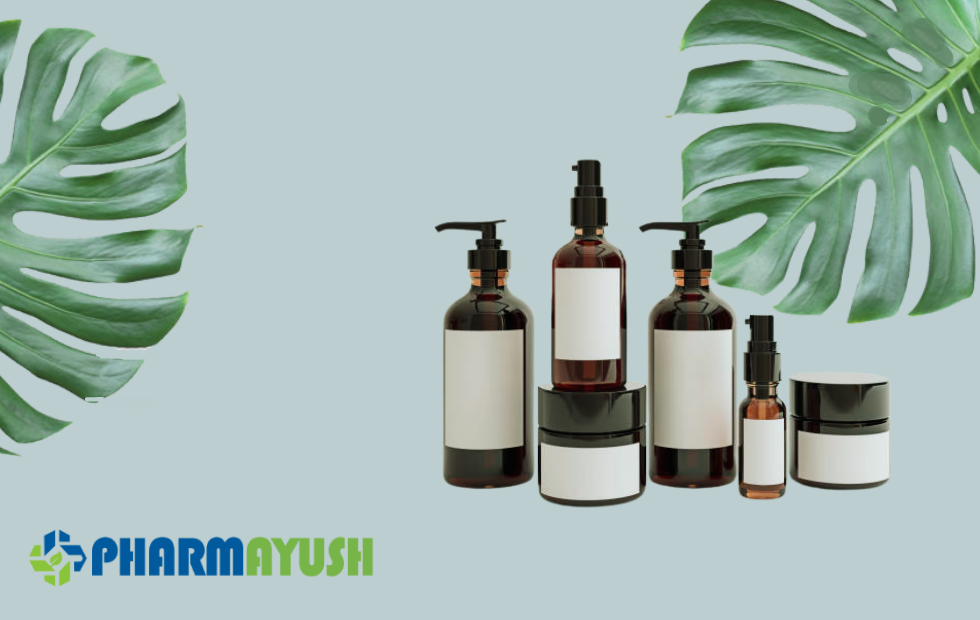Description
Ayurvedic skin care is a holistic approach to taking care of the skin that draws upon the ancient wisdom of Ayurveda. Ayurvedic skin care focuses on using natural ingredients and techniques to maintain the health and radiance of the skin.
The principles of Ayurveda emphasize a balanced lifestyle, including a nutritious diet, regular exercise, and adequate sleep, which can all contribute to healthy skin.
Skin Types According to Ayurveda:
Understanding skin care with Ayurveda involves learning about the principles of Ayurveda and how they relate to the health and beauty of the skin. Ayurveda is an ancient Indian system of medicine that takes a holistic approach to health, focusing on the balance of the mind, body, and spirit. In Ayurveda, the skin is considered an organ of elimination and reflection, and its appearance can reveal imbalances within the body.
According to Ayurveda, there are three doshas - Vata, Pitta, and Kapha - that determine a person's unique constitution and influence their physical and emotional characteristics. Each dosha has specific skin care needs that can be addressed through diet, lifestyle, and skin care practices.
Vata skin is characterized by dryness, roughness, and a tendency toward wrinkles and fine lines. To care for Vata skin, it is important to nourish and moisturize the skin with gentle, hydrating ingredients such as sesame oil, almond oil, or tea tree oil. Eating warm, moist foods can also help to balance Vata.
Pitta skin is sensitive, prone to redness and inflammation, and may be oily or combination. To care for Pitta skin, it is important to use cooling, soothing ingredients such as aloe vera, sandal, or rose water. Avoiding spicy and acidic foods can also help to reduce inflammation and balance Pitta.
Kapha skin is oily, prone to congestion and acne, and may appear dull or heavy. To care for Kapha skin, it is important to use stimulating and detoxifying ingredients such as turmeric, neem, or ginger. Eating light, spicy foods and avoiding dairy and sugar can also help to balance Kapha.
Tips for Ayurvedic Skin Care:
Practice abhyanga: Abhyanga is a traditional Ayurvedic massage technique that involves massaging warm oil onto the skin. This technique helps to nourish and moisturize the skin, improve circulation, and promote relaxation. Sesame oil is a popular choice for abhyanga, but you can also use coconut oil, almond oil, or other oils depending on your dosha.
Use natural ingredients: Ayurvedic skin care emphasizes the use of natural ingredients that are gentle on the skin and free from harsh chemicals. Some popular Ayurvedic skin care ingredients include turmeric, neem, sandalwood, aloe vera, and rose water. These ingredients have anti-inflammatory and antibacterial properties that can help to soothe and protect the skin.
Stay hydrated: Drinking plenty of water is essential for healthy skin. According to Ayurveda, warm water is best for hydrating the body and flushing out toxins. You can also drink herbal teas that are specifically formulated to support healthy skin, such as chamomile, mint, or licorice root tea.
Practice mindful eating: Ayurveda emphasizes the importance of mindful eating, which involves paying attention to the flavors, textures, and aromas of the food you eat. Eating a balanced diet that includes plenty of fresh fruits and vegetables, whole grains, and lean proteins can help to nourish the skin from the inside out.
Get enough sleep: Adequate sleep is essential for healthy skin. According to Ayurveda, the hours of 10 p.m. to 2 a.m. are the most important for restorative sleep. Try to establish a regular sleep routine and avoid using electronic devices before bedtime to promote better sleep.
DIY Ayurveda Face Mask Recipes
Ayurvedic face mask recipe that can help balance Vata, Pitta and Kapha skin types:
Ayurvedic face mask recipe that can help balance Vata skin:
Ingredients:
- 1 tablespoon of mashed ripe banana
- 1 teaspoon of honey
- 1 teaspoon of plain yogurt
- 1 teaspoon of almond oil
Instructions:
- In a small bowl, mash 1 tablespoon of ripe banana until it becomes a smooth paste.
- Add 1 teaspoon of honey, 1 teaspoon of plain yogurt, and 1 teaspoon of almond oil to the bowl and mix well.
- Apply the mixture evenly to your face and neck, avoiding the eye area.
- Leave the mask on for 10-15 minutes.
- Rinse the mask off with warm water and pat your skin dry.
The ingredients used in this face mask recipe help to deeply moisturize and nourish dry Vata skin. Ripe banana is rich in vitamins and minerals that can help to soothe and hydrate the skin. Honey is a natural humectant that helps to retain moisture in the skin. Yogurt contains lactic acid that can help to exfoliate and brighten the skin. Almond oil is a natural emollient that can help to deeply moisturize and nourish the skin.
Ayurvedic face mask recipe that can help balance Pitta skin:
Ingredients:
Instructions:
- In a small bowl, mix together 1 tablespoon of sandalwood powder and 1 teaspoon of rose water to form a paste.
- Add 1 teaspoon of plain yogurt and 1 teaspoon of honey to the bowl and mix well.
- Apply the mixture evenly to your face and neck, avoiding the eye area.
- Leave the mask on for 10-15 minutes.
- Rinse the mask off with warm water and pat your skin dry.
The ingredients used in this face mask recipe help to soothe and cool Pitta skin. Sandalwood powder has a cooling effect on the skin and can help to reduce inflammation and redness. Rose water is also cooling and can help to soothe and hydrate the skin. Yogurt contains lactic acid that can help to exfoliate and brighten the skin. Honey is a natural humectant that helps to retain moisture in the skin.
Ayurvedic face mask recipe that can help balance Kapha skin:
Ingredients:
Instructions:
- In a small bowl, mix together 1 tablespoon of honey and 1 tablespoon of apple cider vinegar.
- Add 1 tablespoon of oatmeal to the bowl and mix well to form a paste.
- Apply the paste evenly to your face and neck, avoiding the eye area.
- Leave the mask on for 10-15 minutes.
- Rinse the mask off with warm water and pat your skin dry.
The ingredients used in this face mask recipe help to purify and balance Kapha skin. Honey is a natural humectant that helps to retain moisture in the skin while providing antibacterial properties. Apple cider vinegar helps to balance the skin's pH level and tighten pores. Oatmeal is a natural exfoliant that can help to remove dead skin cells and unclog pores.
Again, it's important to note that everyone's skin is unique, and what works for one person may not work for another. If you have sensitive skin, it's a good idea to patch test the mask on a small area of skin first to make sure you don't have an adverse reaction.
Conclusion:
Ayurveda offers a holistic approach to skincare that focuses on promoting overall health and wellness. Ayurvedic skincare products use natural ingredients that have therapeutic properties and are free of synthetic chemicals and artificial fragrances. By understanding your skin type and practicing good hygiene, eating a balanced diet, staying hydrated, managing stress, and seeking professional advice, you can promote healthy and radiant skin. Ayurvedic skincare can be used to manage a variety of skin conditions and is a gentle and effective alternative to conventional skincare products. With its emphasis on natural ingredients and overall well-being, Ayurveda offers a comprehensive and sustainable approach to skincare that can benefit individuals of all ages and skin types.
Find a variety of ayurvedic products for skincare which comes in capsules, creams, oil, facewash and facepack, from Pharmayush, an online platform for all ayush medicines and products, where customers can buy ayurveda, siddha, unani, cosmetic products and homeo medicines in a single online platform and even through an application.











